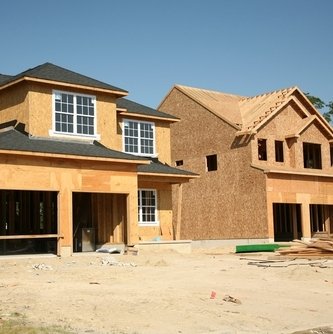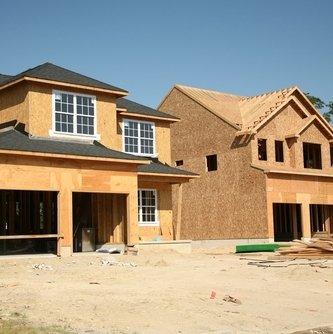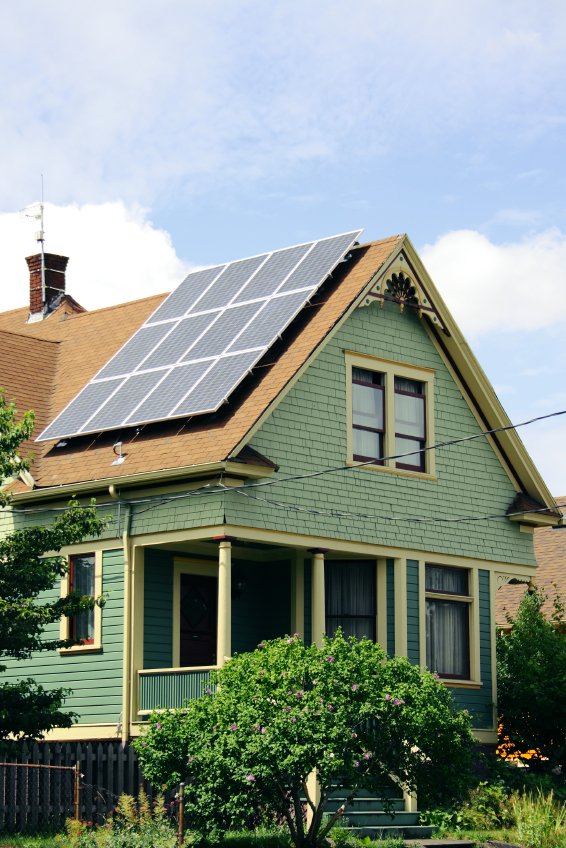
Housing trends change based on economic factors, technological advances and fluctuations in buyer demographics. According to the U.S. Census Bureau, in 2007, the average home boasted 2,277 square feet of space. The size of homes steadily declined once the recession hit. As the U.S. economy recovers, housing sizes are once again growing. However, buyers who began searching for homes during the recession are now asking whether owning a larger house is worth the extra cost.

The Average American Home
In 2012, 483,000 single-family homes were built in the United States, according to U.S. Census Bureau data. Of that total, approximately 46 percent of homes had four or more bedrooms, and about 15 percent had two or fewer. The majority of homes were at least two stories tall. Multi-car garages were another popular feature. Although the average home size went down during the recession, homes constructed in recent years are still quite large in comparison to older homes. In 1973, only 23 percent of homes had four or more bedrooms, and the average home was 1,525 square feet. The number has been on the rise since then, though the U.S. only broke into the 2,000-square-foot range in 1998.
Benefits of Downsizing
Americans tend to like big things: cars, meals, and homes. Many homeowners feel they need four or more bedrooms, great rooms with vaulted ceilings, formal dining rooms, and multi-car garages. But is bigger really better? Owning a smaller home has many advantages. Smaller homes cost less, not only on the initial purchase price, but also to operate and maintain. Larger homes have higher costs for cooling, heating, electricity and water, as well as higher property taxes. Because a small home has less space to heat and cool, rooms heat quickly and stay warmer, thereby reducing overall energy use. Owning a smaller home allows you to reduce energy costs while decreasing your carbon footprint.
Another benefit of downsizing is that your money goes farther. The right home remodeling projects can be cost effective and increase the resale value of the house. Owners 
Smaller, Smarter Homes
According to RR Market Research, the smart home market is expected to explode in coming years. Many homeowners are choosing to spend money on convenience rather than size. Some home features growing in popularity include radiant heating systems , programmable thermostats and remote appliance control. Research also predicts that energy efficiency will become a major selling point for homes built within the next decade. Small homeowners can put more money towards these features than Americans who have more square footage. For example, the cost of floor warming systems varies with the amount of square footage to be covered. Adding radiant heating to your home, especially in the areas you use most, allows you to lower the thermostat setting for the rest of the house and save more money on energy costs. Plus, in a smaller home, the savings are compounded as you have fewer rooms to heat.
Ultimately, determining the best home size for you will depend on your family’s needs: how you will live in it and what you can afford. While it may be tempting to try to keep up with the Joneses, living smarter is often better than living large.
Sources:
https://www.census.gov/const/C25Ann/sftotalmedavgsqft.pdf
http://www.builderonline.com/builder-100/strategy/bigger-homes-are-not-better-homes_o
http://www.census.gov/construction/chars/highlights.html
http://money.cnn.com/2013/06/04/real_estate/home-size
https://money.usnews.com/money/blogs/my-money/2011/10/04/5-reasons-you-should-buy-a-small-house
http://www.menafn.com/181967db-1475-42cb-b440-3fa8b1088c2f/Americas-Smart-Homes-Market-Analysis-2020-Forecasts?src=main
Have Questions About Your Project?
Our team of Radiant Experts is ready to help!
Stay Updated
Get the latest radiant heating news and tips delivered to your inbox.


